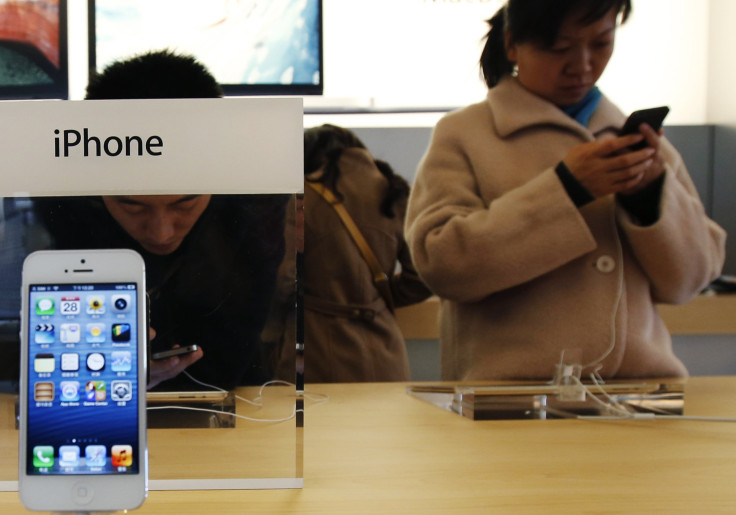Barack Obama Overrides US Global Trade Watchdog’s Ruling On Apple Products; The Last President To Veto ITC Ruling Was Ronald Reagan In 1987

For only the fifth time in history, a president has overruled a decision by the U.S. International Trade Commission, or ITC -- a quasijudicial body that provides trade expertise to the executive and legislative branches of government.
Just two days before a ban on U.S. sales of older versions of the iPad and iPhone from the Cupertino, Calif.-based Apple Inc. (NASDAQ:AAPL) was to have gone into effect, President Barack Obama on Saturday vetoed a year-old ITC ruling on an alleged Apple infringement of a patent held by Samsung Electronics Co. Ltd. (KRX:005935), its main rival in the mobile-device marketplace.
The decision, made public on Saturday in a letter from U.S. Trade Representative Michael B.G. Froman to ITC Chairman Irving A. Williamson, basically says the patent in question -- an apparatus and method for encoding and decoding mobile communications -- is a so-called standards-essential patent, an invention that is so fundamental to global standards that patent owners are compelled to grant licenses to competitors.
The dispute between Apple and Samsung over whether Apple can use Samsung’s patent is similar to a row in the early 1990s between the Unisys Corp. (NYSE:UIS) and CompuServe, now owned by AOL Inc. (NYSE:AOL), over Unisys’s LZW patent behind the graphics interchange format, or GIF. What was once a proprietary piece of code is now a ubiquitous element on the Web, used widely on commercial sites such as BuzzFeed, among a host of others.
The ITC ruling raised eyebrows among antitrust advocates because a lot of patents are involved in mobile communication standards. Apple and other tech companies have argued that Samsung is committed, like other tech companies, to fairly licensing such standards-essential patents. And Samsung hasn’t argued that Apple shouldn’t use the patents, but has argued it has avoided paying fair licensing fees.
The dispute is part of a larger ongoing row between the makers of the world’s two most popular smartphones in which Apple has accused Samsung of stealing elements of Apple’s mobile operating interface. Apple is also fuming at Google Inc. (NASDAQ:GOOG) over the Android mobile operating system because of what it says are similar intellectual-property thefts.
The Obama administration’s last-minute decision to block the ban on the sale in the U.S. of Apple products that use the patent in question -- the iPad 3G, iPad 2 3G, iPhone 4, iPhone 3 and iPhone 3GS -- marks only the fifth time a president has ever used this power, listed under Section 337 of the 1930 Tariff Act.
Since 1974, the ITC has instituted about 200 Section 337 investigations, according to a research study conducted at the Michigan State University College of Law that came out in the wake of the last time a president moved to block an ITC product ban, in this case Ronald Reagan in 1987. In its decision, the Reagan administration blocked an ITC ruling to prohibit the import of certain alkaline batteries. In that case, battery maker Duracell -- now owned by the Procter & Gamble Co. (NYSE:PG) -- claimed gray-market importation of its batteries was harming its U.S. profitability.
Reagan had earlier blocked two other ITC decisions -- one centered on molded sandwich panels, such as those used for the walls of aircraft, and the other related to paper manufacturing. Reagan’s predecessor, Jimmy Carter, also used this power to block an ITC ruling on certain welded stainless-steel pipes.
© Copyright IBTimes 2024. All rights reserved.






















